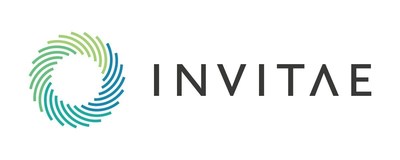Data shows current guidelines exclude many patients with medically relevant genetic changes
|
SAN FRANCISCO, Dec. 10, 2018 /PRNewswire/ -- Current guidelines for genetic testing of breast cancer patients miss as many patients with pathogenic variants (or genetic mutations) as they find, according to a new study published in the Journal of Clinical Oncology by researchers from the TME Breast Care Network, a network of more than 300 leading breast cancer physicians and Invitae (NYSE: NVTA), one of the fastest growing genetics companies. The findings support broadening and simplifying current guidelines to ensure all breast cancer patients have access to genetic information to guide their breast cancer care, potential screening for other cancers, and inform their family's health.
"Our study shows current genetic testing guidelines for breast cancer patients exclude patients with clinically important genetic changes that impact their health," said Peter Beitsch, MD, co-founder of the TME Breast Care Network, and corresponding author on the study. "These guidelines were established nearly 20 years ago to identify only patients with the highest likelihood of carrying variants in just two specific genes, BRCA1 and BRCA2. Since then, our understanding regarding the importance of non-BRCA genes has grown, and the cost of genetic testing has plummeted. Today, the data supports one clear guideline -- all breast cancer patients should receive genetic testing." The IRB-approved multicenter prospective registry used in the study included 20 breast cancer treatment centers experienced in cancer genetic risk assessment and management. Patients were eligible to participate if they were at least 18 years old, carried a personal diagnosis of breast cancer, were either currently being treated or previously treated, and had not previously undergone either single or multi-gene germline testing. The study included two equal cohorts: patients who met well-known and widely used genetic testing guidelines and those who did not. All patients underwent germline genetic testing with Invitae's 80-gene, multi-cancer panel. Results showed that 83 of 959 patients (8.65%) of patients tested had a pathogenic or likely pathogenic (P/LP) genetic variant. Within each cohort, 9.39% (45/479) who met testing guidelines and 7.9% (38/480) patients who did not meet guidelines had a P/LP variant. The difference between the two groups was not statistically significant (p = 0.4241). Among the group of patients with P/LP variants who did not meet testing guidelines, 76% had variants in genes for which there are established clinical management recommendations. Additionally, 56% were potentially eligible for precision therapeutic clinical trials. "Genetic testing guidelines, as they currently exist, are both outdated and unnecessarily complicated, and serve to restrict access to testing. This study supports simplifying the guidelines to one clear standard – all breast cancer patients should receive genetic testing that is of high quality, designed for clinical use, and includes all genes for which there are medically actionable recommendations," said Robert Nussbaum, MD, chief medical officer of Invitae. "Making testing universal for breast cancer patients would give much-needed information to patients, their physicians, and their families. For patients, genetic information can guide treatment choices and clinical trials. For family members, genetic information can help prevent additional cancers through cascade testing and appropriate prevention and surveillance strategies." Approximately 330,000 patients are diagnosed with breast cancer every year in the United States. An estimated 10% of these cancers are likely due to hereditary causes. Yet, studies have estimated that less than 10% of all BRCA1 and BRCA2 carriers have been identified. Moreover, 50–80% of individuals at risk have not received genetic testing, in part because they do not meet the family history criteria of current testing guidelines and may lack insurance coverage for testing. About Invitae Safe Harbor Statements Contact:
SOURCE Invitae Corporation |
Company Codes: NYSE:NVTA |





